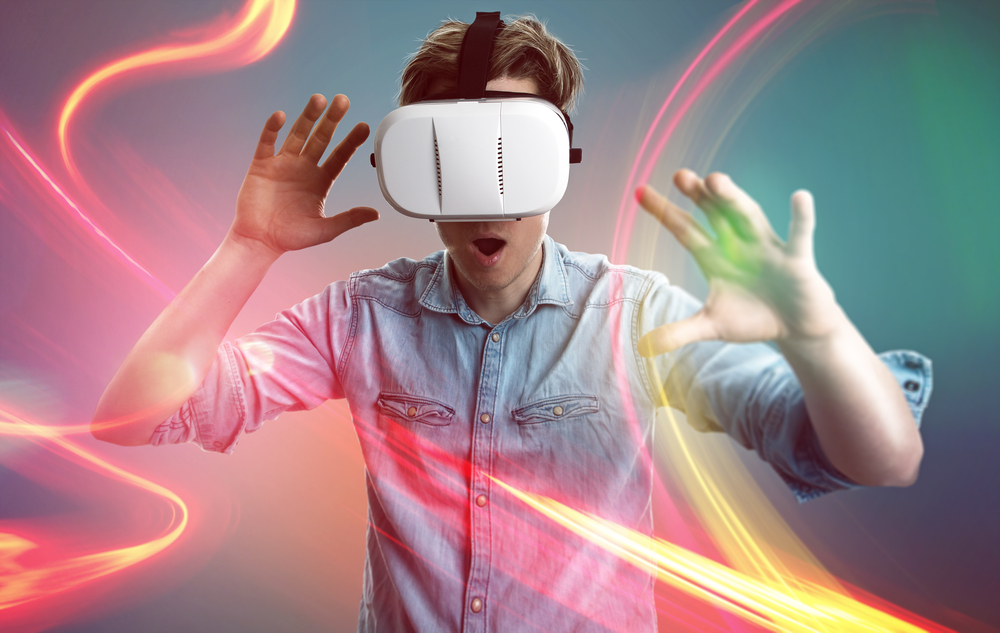An immersive, three-dimensional (3D) world that is generated by computers may change the face of online gambling in the coming decades. Virtual Reality (VR) has existed in the collective imagination for decades, popularised by its presence in science fiction, and the dramatic advances in Information Technology (IT) that occurred in the late twentieth century made it seem that we would soon be living our lives in a computer-generated world. The technology that allows VR to function, however, failed to show any major signs of promise until the second decade of the twenty-first century. VR casinos, made possible by recent technological advances, could be the future of the online gambling industry, but the top news casino. headlines on VR are still far in between.

Gambling in the digital age
Gambling, originating in the Paleolithic era, has been a feature of human recreational activity since the earliest games of chance were invented. Dice, first appearing on the archaeological record in the 30th century B.C.E., have played a pivotal role in gambling throughout the ages and are used in popular casino games such as Roulette and Craps. The IT revolution, spurred by the invention of digital computers in the 1940s, saw the emergence of a new type of gambling where the results are determined by computer algorithms. Fruit machines, a fixture of public houses throughout the United Kingdom (UK), utilised this digital technology while the creation of the Internet gave rise to online casinos.
The dawn of VR casinos
VR, emerging from what has been a lengthy period of stagnation, looks like it will dominate the technological landscape of the future and revolutionise the manner in which gambling companies interact with their customers. The fact that industry giants such as Amazon, Apple, Google, Facebook, Microsoft, Samsung and Sony are busy developing VR devices suggests that we are embarking upon a transitional phase that will elevate the status of VR technology to that enjoyed by smartphones in the present day. Online Casino providers in the UK, conscious of prospective shifts in the market, are aware of the commercial potential of VR technology as the devices become more affordable.
Improving upon existing models
A major drawback of online casinos, according to seasoned gamblers, is their inability to emulate the realistic sights and sounds of land-based gambling facilities. The new generation of VR headsets, beginning with the release of the Oculus Rift in 2010, presented online gambling platforms with the opportunity to emulate some of the real-life casino features that their customers had been missing. The ability to experience a computer-generated casino in 3D, to hear the background noises associated with a gambling house and the ability to play popular games of chance within this immersive environment was a major improvement upon the state of existing online gambling technology.
The current state of Virtual Reality gambling technology
Those who wish to play casino games such as Blackjack, Craps, Poker or Roulette in a VR environment will find that the technology is still in the early stages of its development. Online casino games, available on laptop and mobile devices, can be selected in 3D surroundings via a VR headset. NetEnt, operating one of the leading Web-based gaming platforms in Europe, became the first electronic gambling company to release a real-money slots game in the UK through its virtual casino. Gonzo’s Quest, the company’s first attempt at offering VR online slots games to its customers, was released in 2017 and allows players to enter a 3D world that centres around the exploits of its eponymous character.
Virtual casinos of the future
There will need to be a considerable shift in gaming culture, instigated by a widespread dissemination of VR technology and a proliferation of virtual casino games, before people start to favour VR casinos over bricks-and-mortar gambling dens. Human technology, by its very nature, evolves as new solutions are found to existing problems and it is likely that VR casinos will improve over the coming years. Computer hardware, increasing in sophistication with the passage of time, may be able to emulate the sense of touch or smell that is lacking in today’s VR technology and this could be applied to the online casinos of the future.
The road to success
The ability to use all five senses within a virtual environment, facilitated by technology that is currently in its embryonic stages, could help lead the way to VR casinos that are indistinguishable from those found in the real world and which may become as popular as the bricks-and-mortar establishments of today.